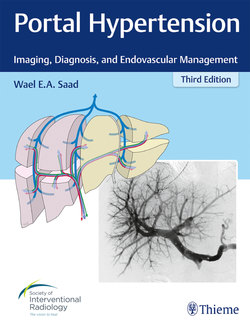Описание книги
Previously published by the Society for Interventional Radiology (SIR), this fully revised and updated third edition of Portal Hypertension: Imaging, Diagnosis, and Endovascular Management is the first volume in collaboration between Thieme and the SIR. Edited by Wael Saad and written by internationally recognized experts, this authoritative volume is a comprehensive guide to the diagnosis and interventional management of portal hypertension. A potentially serious condition, portal hypertension presents considerable clinical challenges due to the delicate nature of the impacted organs, veins, and vessels. From pathophysiology to the latest state-of-the-art approaches, five major sections encompass diagnostic, medical, endoscopic, non-vascular, surgical, percutaneous, endovascular, and balloon-occluded methodologies, including indications, complications, and clinical trial results. Throughout this book's 33 chapters, a Who's Who of world-renowned interventional radiologists share clinical pearls and step-by-step procedural guidance. Several techniques have undergone significant advances since the second edition was published, including Transjugular Intrahepatic Portosystemic Shunt (TIPS), Balloon-Occluded Retrograde Transvenous Obliteration (BRTO), Balloon-Occluded Antegrade Transvenous Obliteration (BATO), and variations on TIPS, and all these are featured herein. Key Highlights Hepatic and portal venous anatomy relative to procedural approachesNearly 250 figures elucidate anatomical structures and technical methodologiesTIPS: patient selection, effects on kidney and liver function, hemodynamic changes, intravascular ultrasound guidance, Doppler surveillance, and utilization for Budd-Chiari Syndrome and liver transplantationTIPS clinical study outcomes for variceal bleeding, ascites, and hydrothoraxBRTO and BATO techniques, clinical study outcomes, and utilization for gastric varicesManagement of mesenteric and portal vein stenosis, thrombosis, and hypersplenismThis remarkable book is a must-have tool for interventional radiologists and for all those who care for patients with portal hypertension, from residents to practicing clinicians.
